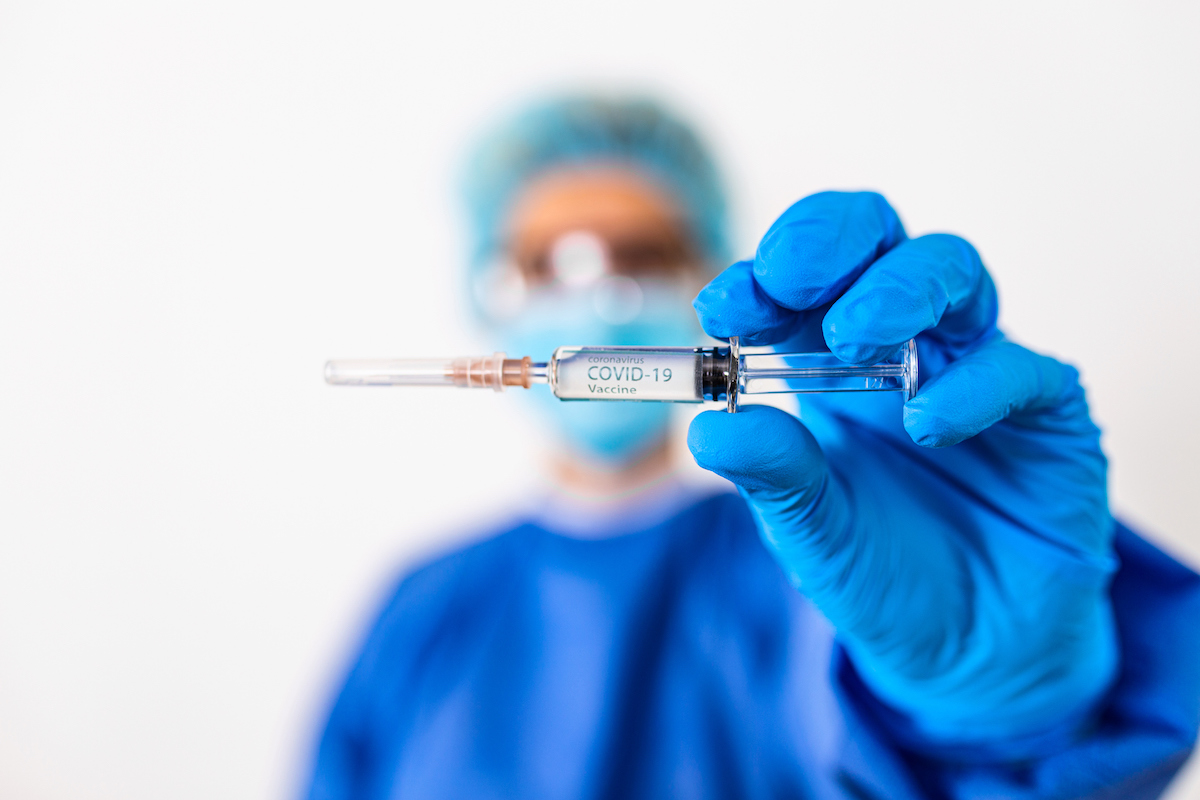<< Back
Study: Vaccinated Are Twice as Likely To Be Symptom-Free if Infected With COVID

September 02, 2021
People with breakthrough COVID-19 infections are twice as likely to be symptom-free and close to 70 percent less likely to require hospitalization than if unvaccinated, according to a report published today in The Lancet Infectious Diseases.
A vaccination also reduces the risk of severe disease by 33 percent, according to the large-scale study that used data collected from 1.2 million adults in the United Kingdom via a COVID-19 symptom tracking app from last Dec. 8 through July 4. The researchers also found odds of developing long COVID, which includes symptoms lasting at least 28 days after a positive test, dropped by 50 percent. The study, led by King’s College London, also included researchers from University College London, Massachusetts General Hospital and Harvard Medical School.
A breakthrough infection includes anyone who tests positive despite being either partially or fully vaccinated.
“Our findings might support caution around relaxing physical distancing and other personal protective measures in the post-vaccination era,” wrote the study’s authors, “particularly around frail older adults and individuals living in more deprived areas, even if these individuals are vaccinated, and might have implications for strategies such as booster vaccinations.”
Adults over 60 years old are most vulnerable to breakthrough infections, the study noted, particularly those with existing medical conditions such as heart, lung and kidney disease or obesity. Those who live in densely populated urban settings are also more susceptible to breakthrough infections.
The Centers for Disease Control and Prevention already has urged anyone unvaccinated to avoid travel during the Labor Day weekend, but this new study also should add extra caution when, for instance, vaccinated grandparents consider visiting their unvaccinated grandchildren.
“It really depends on the unvaccinated kids and their circles that they enter in,” says Dr. Ulysses Wu, Hartford HealthCare’s System Director of Infection Disease and Chief Epidemiologist. “So if they were at an outdoor camp, where transmissions were probably low, then that’s probably OK. If they were at a large birthday gathering recently with a mix of vaccinated and unvaccinated, maybe 50 kids and they were all inside because it was raining, I would maybe take a little bit of a hiatus. Take a 10-day break and say maybe, ‘Grandpa and Grandma maybe shouldn’t visit this weekend.'”
Other highlights of the study:
- Of the 1.2 million adults who received at least one dose of the Pfizer-BioNTech, Moderna or AstraZeneca (not available in the U.S.) vaccine, fewer than 0.5 percent tested positive for COVD-19 14 days after their first dose. After the second dose, 0.2 percent became infected more than seven days after the vaccination.
- After one dose, the chances of severe symptoms dropped by 25 percent.
- Odds of an infection being symptom-free increased to 94 percent after the second dose.
- Vaccinated participants over 60 were more likely to be symptom-free if infected.